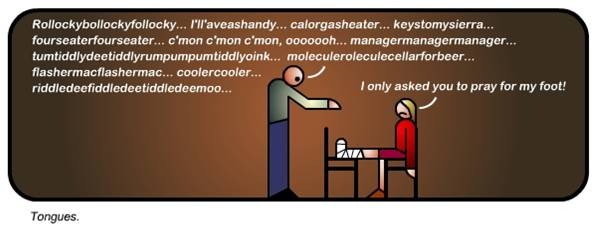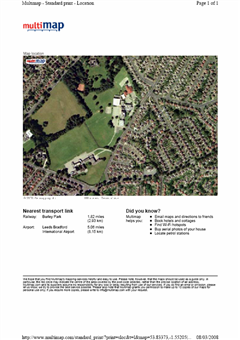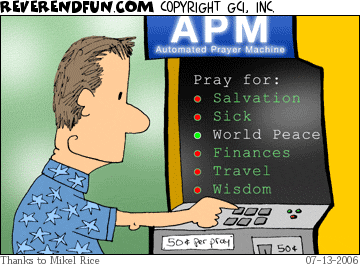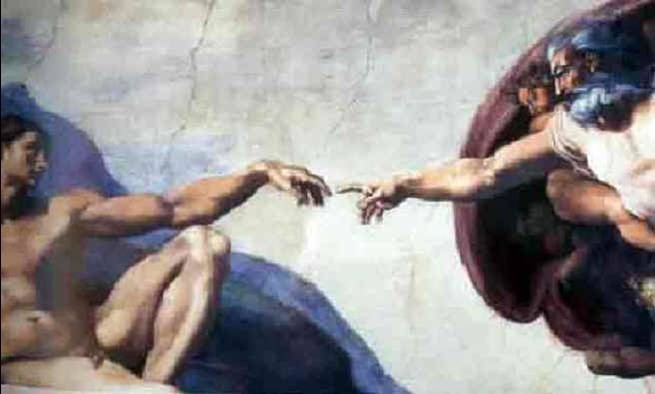Confession and prayer
James the pastor reflects on the community of faith at prayer. The pastor of the first community that gathered together - joined by their love for and desire to follow Jesus. He had been overseeing the community of faith work out what to do when people were short of cash, when they were sick, when they behaved badly.
The letter from James to the dispersed Jesus followers around Palestine demonstrates his pastoral perspective; he calls people to radical followership of Jesus: breaking social conventions, being ruthless in dealing with sin, pursuing certainty of mind about matters of faith. He knows what makes a healthy community and what dangers to prepare for.
He ends his letter, as do many of the letter writers of the time, with an encouragement about prayer. As is typical of the way James writes, this passage is not argued as a series of logical points; it is more a general observation and encouragement.
I can imagine him leaning back in an armchair in Café Nero’s chatting with a local pastor about how to handle sickness and prayer. The pastor has bought a couple of hot chocolates and buns and having sat down, leans across the coffee table and asks, “James, there are people in my church who are sick and in trouble, how should we pray for them?”

Prayer
He is most certainly talking about prayer – there are 7 or 8 mentions in 6 verses. Different Greek words but ones which provide a rounded understanding of what James is getting at.
Sometimes we pray and ask for things which seem good to us and God does not seem to deliver. That is very disheartening and fills us with doubt. We are tempted to give up and leave it to others and just retreat into a pale imitation of the life of faith and of following Jesus. But perhaps at these times we need to (1) remind ourselves that we don’t have the full picture and (2) listen to what James is saying.
1. The Big Picture - the helicopter view

Alison shared a picture a few weeks ago of the police helicopter with the heat sensitive camera tracking the criminal from the air whilst the police on the ground follow the instructions. You can imagine the conversation, "Hey, you up there, help me find this burglar, which way shall I go here?" The answer comes, "Go back first". The man on the ground can’t face going back so he makes a guess because he heard something over the fence in front of him. He scrambles up the fence and falls over into a cattle pen and gets covered with manure. "Thanks a lot he says to the helicopter, where now?"
You can make it up can’t you? The helicopter has a much better view and directs the men on the ground in ways which may seem odd to them but avoids dead ends and piles of cow dung.
2. What is James saying?
Let me speak to those of you who are in certain situations and apply this description:
- Having a hard time (cf 1:2ff). You are to pray. That does not mean pray for all your troubles to disappear but maybe for strength to get through – remember how James starts the letter, “be joyful when you suffer trials because they help you become mature & complete”.
- Having a good time, you are “at peace” (happy). You are to pray in the form of worship, a natural eruption of praise and thanks in song.
- Seriously ill. You are to call for the pastors/elders to come and pray for you. There is a sense that for serious illness the leaders and experienced ministers can be called upon - although everyone is meant to pray.
- Doing things you shouldn’t (or not doing things you should) or saying/thinking things which turn you away from God and not toward him. You are to confess your sin to another and ... repent.
- In all situations then, pray.
Confession
James summarises this reflection on prayer by saying, "confess your sins to one another".
I think the need to confess sin and receive forgiveness is crucial to his message.
1 John 1:9, "If we confess our sin, he is faithful and just and will forgive our sins and purify us from all unrighteousness".
* Partly because sin can often be a cause of illness & trouble. James pictures a community where through confession and repentance and forgiveness sin is steadily removed thus leading to a healthier group of people (he is not saying that if you are ill it is because you have sinned but he is saying, if you sin, confess it and receive forgiveness).
* Partly because when confession and repentance have taken place and forgiveness received we stand in a righteous relationship with God and are better able to understand God’s will and we are more able to offer a prayer of faith.
This confession dynamic is not so established as to lead us into the Roman Catholic model of the confessional where you regularly visit in supposed anonymity confessing your sin for the last week – although in my opinion there is much good to be said about that practice.
James is rather describing a community of people in real and open relationships with each other where they are accountable and transparent with each other and quickly deal with issues in their lives.
You know what it is like when you walk into a room and you can sense tension and nastiness in the air - compared to a room where you can sense grace and acceptance.
There is a picture in my mind of what this group of people is meant to be like: instead of a community where the air is poisoned with hostility, gossip, hate, bitterness and resentment it has instead the fragrance of Jesus, we can sense trust, humility, respect, truth, love and forgiveness in the air.
How? Well we are quick to confess and quick to forgive: we are as quick to forgive each other as the Lord is to forgive us.
The most obvious place we learn this is in small groups – housegroups.
Types of confession & repentance:
- a personal conversation with God of always clearing out rubbish
- part of our liturgy – before communion, prayer, worship
- personal in an accountability relationship
- quick to say sorry and to forgive others (particularly in marriage). James’ community is honest and open with each other, confessing their sin and praying for themselves and each other. Let us be known as a people who say sorry quickly and forgive quickly
at the level of our sin visibility
- Confession leads to forgiveness

The clouds have gone and we can feel the sun, which was always there, again. The sin has gone and we can know the son, who was always there, again. Then we enjoy an environment of righteousness and faith where God restores people physically & emotionally – from sickness; and where he restores spiritually - from sin.
At this point prayer flows more easily.
And what is prayer?
A shopping list which we take to God? Well, we have indeed shared on many many occasions the joy when we say, God has “answered” our prayer. For example:
- I have been waiting for a very significant & serious decision from the Financial Services authorities about something in my business. My lawyers advised me that it did not look hopeful. We prayed, many of us prayed. We got a great decision and unusually quickly. Was that God or were they going to do make that decision anyway?
- Chris’s friend got up from a seriously disabling back condition after Chris and Dawn prayed. Was that as a result of prayer or just a psychosomatic coincidence?
We can’t prove cause and effect. I pray and God acts. It may happen but is impossible to demonstrate scientifically. We can’t prove that prayer to God changes things the way we want. That is good because it is not what we are trying to do when we pray.
If it were as simple as us doing things in a certain way which meant that God would alter his plans and did what we want, then we would be God and he would be our servant. It is not like that. If we always asked and he always said yes, what does that make him? Kind or just weak?

We are encouraged to pray, and here in James we are given clear counsel about the environment in which we can expect to experience faith, healing and forgiveness but it is not a formula.
It is not a tick box order. It is not a delivery machine, press the right buttons in the right order and out pops just what we want.
That’s the view of God offered by other religions – if I do thus and so, give money, pray often enough, make the appropriate sacrifice then God will hear me.
Remember how hard the prophets of Baal had to work but still couldn't persuade their gods to do what they wanted - contrast Elijah's reluctant prayer on Mount Carmel.
The most extreme example that shows that this is not what prayer is where we read of Jesus himself. The most perfect man - if anyone deserved a prayer being answered, surely he was the man. When he was in the garden of Gethsemane he prayed three times for this coming trauma to be taken away from him. But of course there was a much bigger plan at stake seen by God and seen through by God. But Jesus understood that God had the helicopter view, "Yet not my will but yours".
C.S.Lewis, "Prayer is not a machine. It is not magic. It is not advice offered to God".
So what is prayer then?
Prayer is personal contact between me, an incomplete, embryonic, created, finite person and the complete, uncreated, infinite, concrete Person.

It is amazing that there could be any such contact. Is it not impossible that I might be able to engage the Queen of England in conversation over a glass of wine in the corner of the Queens Arms? How can I possibly establish contact with the creator of the universe? But I can and I should. You can and you should.
At this point we come to one of the mysteries of our faith - our belief that we worship an all powerful, sovereign God who gives free will to his creatures to choose for or against him. We can choose to move our lives into harmony with his purpose for us. We can choose to say forgive me Lord. Repent of our sin and know his power in our lives to change and become more like him. We have those choices, we have free will.
Prayer works in the same way – God is about his business establishing his kingdom but he desires to have us work alongside him.
C.S.Lewis again, "He seems to do nothing of himself which he can possibly delegate to his creatures".
He invites us to take a full part in the big story of his kingdom. What does this look like? Well we cannot yet see the full picture, it is partly here and yet it will only be fully here when the Lord returns. But we do get glimpses – the person who turns away from a selfish life and chooses to follow Jesus, the sick person being healed, relationships being restored, the poor being fed, demons being cast out. And in all these things we get to play a part. Our personal contact, our prayer, with the creator and King allows us to speak a word, lend a hand, provide food, proclaim truth.
Pascal wrote, "God instituted prayer in order to lend his creatures the dignity of causality".
I.e. God permits that our contact with him allows us to enjoy being agents of the coming kingdom. We can pray, in faith, and see the kingdom come. Hence James 5:15,16, "the prayer offered in faith will make the sick man well and will bring forgiveness to the sinner".
Faith being a gift that arises in an environment of confession and forgiveness and righteousness.
 Be obedient in confession and prayer and your faith will rise. Try this. Journal 100 prayers or STEPS … ask God to give you 100 opportunities to pray and see his kingdom come. Keep a notebook, write them all down and see if you get to 100 without being used by God to see his kingdom come, again and again and again…
Be obedient in confession and prayer and your faith will rise. Try this. Journal 100 prayers or STEPS … ask God to give you 100 opportunities to pray and see his kingdom come. Keep a notebook, write them all down and see if you get to 100 without being used by God to see his kingdom come, again and again and again…
H. van der Loos the theologian writes, "Faith, forgiveness and healing are all three in essence dispensations of the grace of God. This implies that the relations between these three are not governed by the law of causality but by the will and intention of God".
In other words:
- Faith is a gift from God
- Forgiveness is a gift from God
- Healing is a gift from God
They can not be demanded or manipulated by us but are given by a loving God who can’t wait to give them. He is neither malicious nor capricious. He is utterly gracious, full of mercy and he invites us to play our part in the big story of his kingdom.
 | James Part 5 - confession and prayer David looks at James the pastor, who is reflecting on the community of faith at prayer. The pastor of the first community that gathered together - joined by their love for and desire to follow Jesus. David Flowers, 09/03/2008 |
|
|
David Flowers, 15/03/2008